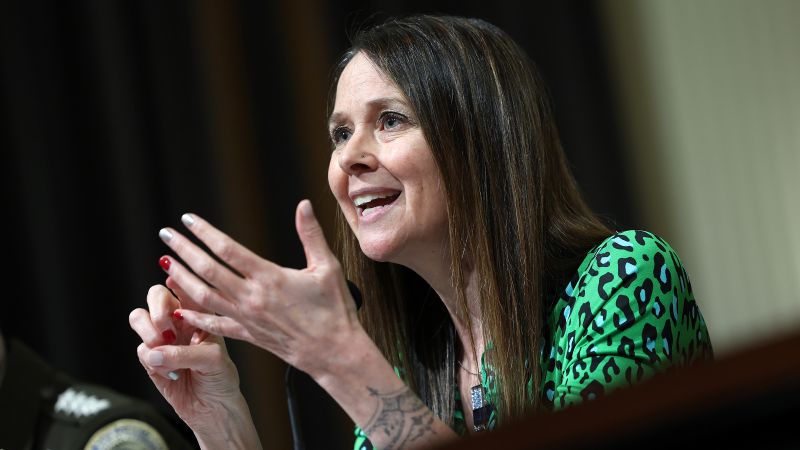On Wednesday, Army Secretary Dan Driscoll took the significant step of ordering the United States Military Academy at West Point to revoke an employment offer that had been extended to Jen Easterly, a former high-ranking national security official under President Joe Biden. This revelation came via a post on the social media platform X, highlighting the ongoing trend in which political leadership within the Pentagon increasingly influences staffing decisions and curricular matters at the nation’s military academies.
Jen Easterly, a notable West Point graduate, had previously served as the director of the Cybersecurity and Infrastructure Agency (CISA) under the Biden administration. Her prospective role was to be the new Robert F. McDermott Distinguished Chair within the Department of Social Sciences, a position that was announced on Tuesday through posts on both X and LinkedIn. However, these announcements were swiftly removed after drawing criticism from far-right activist Laura Loomer. Loomer publicly labeled Easterly a “Biden holdover” and accused her of suppressing Trump supporters during her tenure under Biden’s administration.
In the wake of the order to rescind her job, Easterly expressed her disappointment in a LinkedIn post, suggesting that her situation had become a victim of “casually manufactured outrage,” which eclipsed the essential work of truth and integrity. She emphasized her commitment to the principles embodied by the Warrior Ethos and asserted her determination to continue promoting the Academy’s mission, notwithstanding her inability to take up the post at West Point.
This incident mirrors a broader pattern of tensions surrounding educational content and staffing at military academies, particularly regarding the activities of CISA under Easterly’s leadership. In 2023, House Judiciary Committee Republicans criticized the agency for allegedly engaging in “surveillance” and “censorship” while trying to tackle disinformation and foreign influence in the online sphere. Loomer, in her critiques directed at the Department of Defense, questioned the qualifications of those making hiring decisions, indicating a belief that the hiring practices were fundamentally flawed.
Following Driscoll’s announcement, he outlined intentions for a review of West Point’s hiring processes while simultaneously terminating its “gratuitous service agreement” with Easterly. This marked a new phase wherein the Pentagon expressed an intent to “pause” the involvement of non-governmental entities in the selection of academy staff, reflecting a concentrated effort to exert control over educational content and personnel.
Sean Parnell, a Pentagon spokesperson, reinforced this narrative, insisting that the goal of military education is to prepare cadets as warriors and leaders, not as activists. In addressing a correspondent questioning the increasing role of Trump appointees in military academia, Parnell sought to clarify that their allegiance mattered little, emphasizing the Department’s commitment to its core military objectives.
Driscoll’s interference is part of a pattern of interventions by the political leadership at the Pentagon in the workings of educational institutions, specifically in military academies like West Point. For instance, Graham Parsons, a tenured philosophy professor at West Point, resigned after witnessing alterations to courses and syllabi that he claimed aligned too closely with the ideological preferences of the Trump administration. This resignification of curricula provoked controversy, with Hegseth publicly dismissing Parsons and labeling such perspectives as “woke.”
Additionally, the Pentagon has mandated a systematic removal of library books addressing race, gender, and other sensitive topics, claiming these to be incompatible with the Department’s core mission. Similarly, there are moves to standardize admissions processes to military academies emphasizing merit over race, ethnicity, or sexual orientation, indicating a significant policy shift toward homogeneity in candidate selection.
In summary, the chain of events initiated by Easterly’s revoked appointment exemplifies a calamitous intersection of military education, politics, and societal discourse regarding free speech, censorship, and the ideological direction of the U.S. military. This conflict reveals deeper tensions within our educational structure and poses critical questions about the role of politics in the development of future military leaders.











